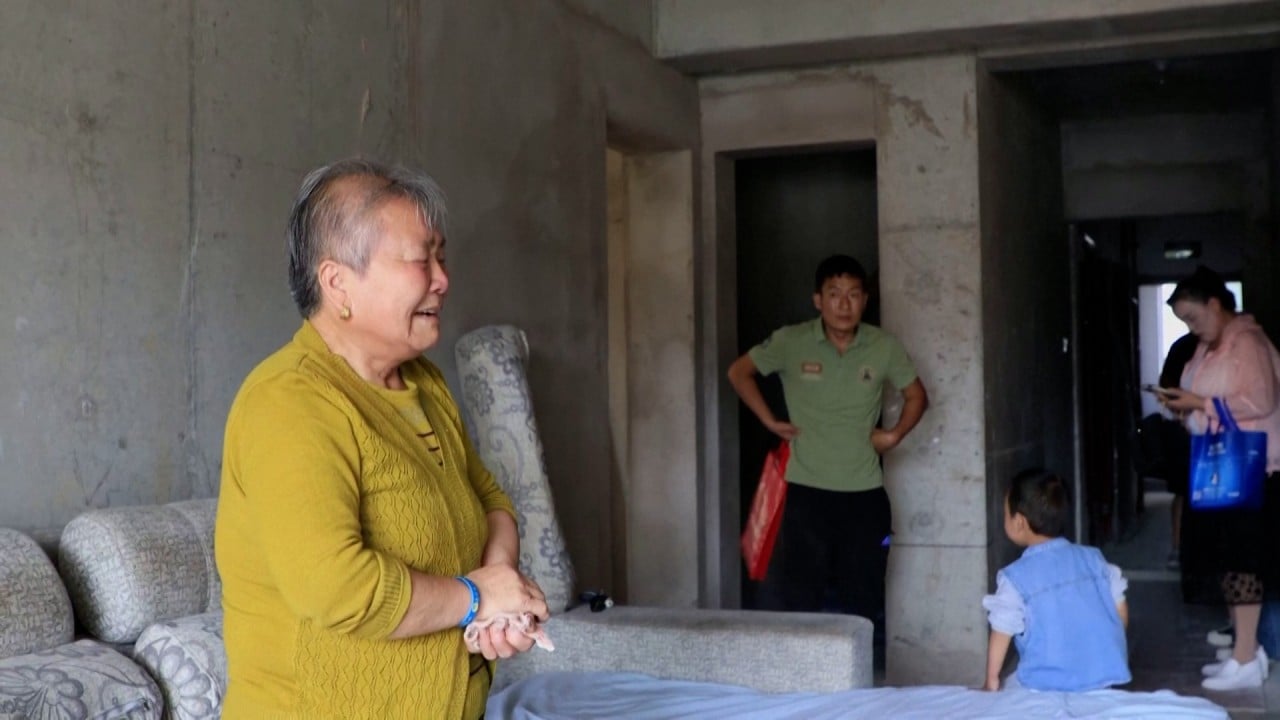Vice-Premier He Lifeng urged on-time delivery of properties and financing support for developers at a meeting in central China over the weekend, rallying efforts to revive a sector critical for this year’s economic growth target and financial stability.
China’s property sector once contributed about a quarter of the national economic output, but it has yet to bottom-out in terms of investment and sales, while market confidence remains weak.
“We must understand the property sector is critical,” the vice-premier told local officials, developers and bankers in Zhengzhou, Henan province, during the two-day inspection tour.
“There must be dedicated funding coordination mechanisms to expeditiously loan to all the projects that meet the ‘whitelist’ requirements for timely completion and delivery.”
China is aiming to keep growth at 5% in 2024. Are the odds in its favour?
China is aiming to keep growth at 5% in 2024. Are the odds in its favour?
China’s so-called whitelist was launched by the housing ministry at the start of the year, with provincial governments asked to recommend to banks local residential projects that are deemed financially sound and fit for further loan support.
He also vowed to uphold the rights of homebuyers to stabilise expectations and the development of the sector, ordering stricter scrutiny of loans and presale accounts that are supervised by the government to prevent misappropriation, according to the official Xinhua News Agency.
Zhengzhou is among the Chinese cities grappling with a large number of abandoned or stalled residential projects, with homebuyers seeking either a refund of their down payment or access to their new homes.
While urging for more developers to be added to the government’s whitelist, He also requested targeted solutions for projects that have not yet qualified.
More funding to ensure delivery of new homes also matters to social stability and helping people to spend more
The world’s second-largest economy is looking for consumption and technology to drive economic growth this year, but such a transition would take time, Li added.
“More funding to ensure delivery of new homes also matters to social stability and helping people to spend more,” she said.
Total home sales also plunged by 29.3 per cent year on year to a little over 1 trillion yuan (US$138 billion) in the same period.
In 2023, property investment fell by 9.6 per cent, while sales dropped by 6.5 per cent, despite cuts to mortgage and deposit rates.
The slowdown also sliced 0.7 percentage points off China’s growth last year, according to the Bank of China.
Since the downturn in 2020, there has been a spate of projects, undertaken with bank loans and down payments from buyers, that have failed when developers collapsed or defaulted.
Nomura estimated in November that there were 20 million units of unconstructed and delayed pre-sold homes in China in 2022, with 3.2 trillion yuan needed for their completion.
A report by the Shanghai-based E-House consultancy said 3.85 per cent of all projects across China had financial woes last year, totalling 231 million square metres (2.49 billion square feet).


